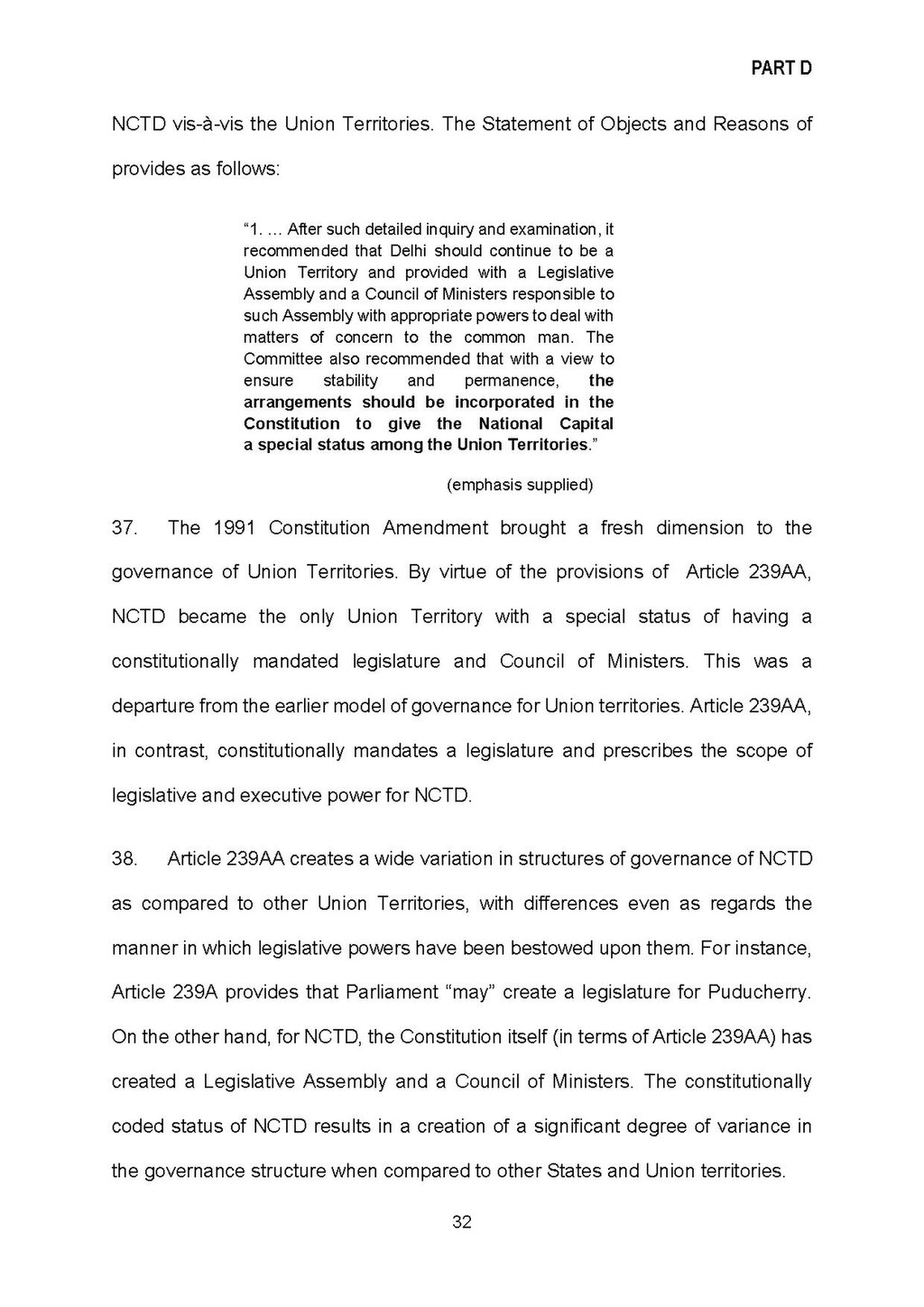NCTD vis-à-vis the Union Territories. The Statement of Objects and Reasons of provides as follows:
“1. … After such detailed inquiry and examination, it recommended that Delhi should continue to be a Union Territory and provided with a Legislative Assembly and a Council of Ministers responsible to such Assembly with appropriate powers to deal with matters of concern to the common man. The Committee also recommended that with a view to ensure stability and permanence, the arrangements should be incorporated in the Constitution to give the National Capital a special status among the Union Territories.”
(emphasis supplied)
37. The 1991 Constitution Amendment brought a fresh dimension to the governance of Union Territories. By virtue of the provisions of Article 239AA, NCTD became the only Union Territory with a special status of having a constitutionally mandated legislature and Council of Ministers. This was a departure from the earlier model of governance for Union territories. Article 239AA, in contrast, constitutionally mandates a legislature and prescribes the scope of legislative and executive power for NCTD.
38. Article 239AA creates a wide variation in structures of governance of NCTD as compared to other Union Territories, with differences even as regards the manner in which legislative powers have been bestowed upon them. For instance, Article 239A provides that Parliament “may” create a legislature for Puducherry. On the other hand, for NCTD, the Constitution itself (in terms of Article 239AA) has created a Legislative Assembly and a Council of Ministers. The constitutionally coded status of NCTD results in a creation of a significant degree of variance in the governance structure when compared to other States and Union territories.
32
